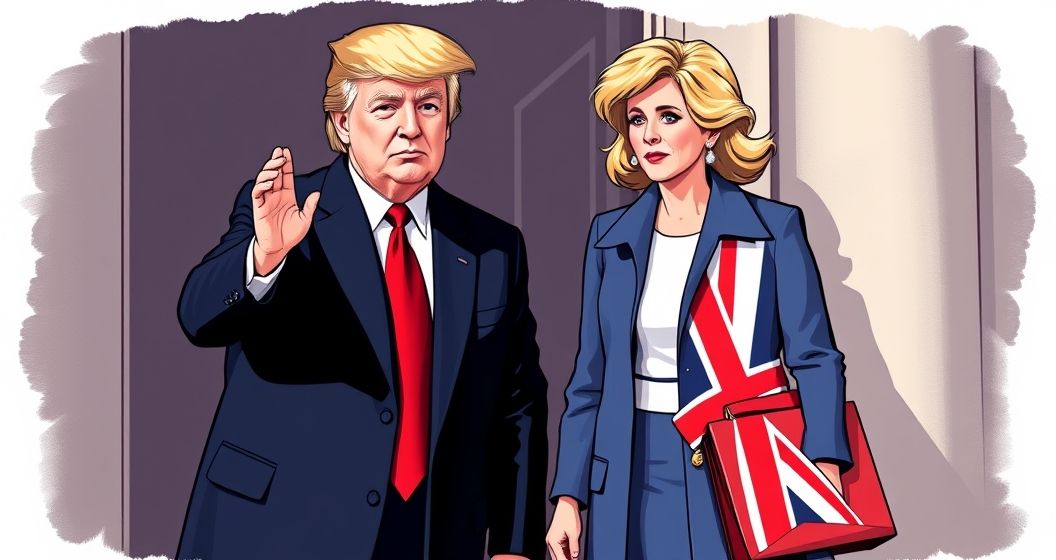The Spectacle of State: Windsor Castle vs. Chequers
The stark contrast between Trump’s evident delight at Windsor Castle and his less enthusiastic engagement with Prime Minister Starmer at Chequers speaks volumes. This isn’t necessarily a criticism of the UK’s hospitality; rather, it underscores Trump’s priorities. The pageantry and historical significance of Windsor Castle clearly resonated more deeply with him than the policy discussions at Chequers. This preference highlights the limitations of the UK’s ability to shape Trump’s agenda through traditional diplomatic channels.
Beyond the Photo Ops: Assessing the Substance
While the Trump administration consistently lauded the “special relationship” between the US and UK, the visit itself yielded few tangible policy breakthroughs. The focus on personal chemistry and symbolic gestures, while important for maintaining a positive public image, ultimately overshadowed concrete achievements. This suggests that the UK’s leverage on key issues, even within the context of a supposedly strong alliance, may have been weaker than often portrayed.
The Limits of “Special Relationship” Rhetoric
The Trump UK visit served as a stark reminder of the limitations inherent in relying solely on historical ties and rhetoric to achieve significant policy outcomes. The “special relationship,” while valuable, is not a guarantee of influence, particularly when dealing with a leader who prioritizes personal relationships and transactional diplomacy. The visit’s outcome underscores the need for the UK to develop more robust and multifaceted strategies to ensure its interests are adequately represented in its relationship with the US.
Post-Visit Analysis: Long-Term Implications
Smith’s analysis prompts crucial questions about the UK’s approach to transatlantic relations in the post-Trump era. The visit exposed the need for a more strategic approach, one that goes beyond symbolic gestures and focuses on tangible results. The UK must adapt its diplomatic strategies to effectively navigate the complexities of the evolving international landscape and ensure its voice is heard, regardless of the political climate in Washington.
The Power of Perception vs. Real Influence
The Trump UK visit was a masterclass in image management for the Trump administration. The carefully crafted narrative of a strong and enduring relationship served its purposes, even if the underlying reality was more complex. Smith’s insightful reporting forces us to consider the gap between carefully cultivated perceptions and the actual level of influence exerted. This distinction is critical for understanding the dynamics of international relations in the 21st century. Future UK-US interactions must navigate this delicate balance more effectively. The Trump UK visit, therefore, remains a significant case study in international diplomacy. It serves as a potent reminder that while maintaining positive relations is crucial, the UK must actively pursue strategies to maximize its influence on the world stage, irrespective of the personality or policies of its major allies.


